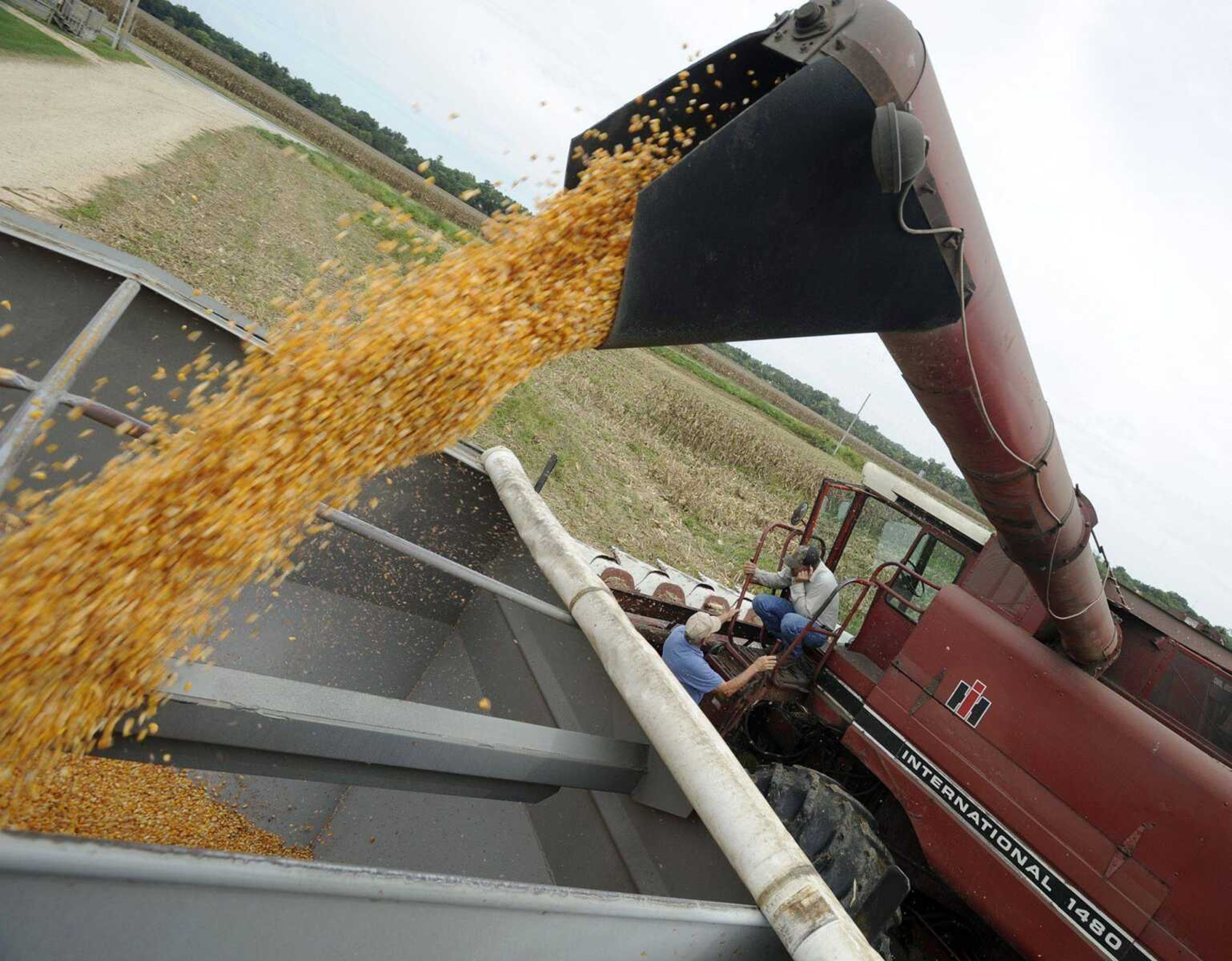Heat, lack of rain and insects contribute to lower yields for Southeast Missouri farmers
Southeast Missouri farmers are working especially hard this year to combat an unusually hot and dry summer. Dale Glenn, a farmer in Charleston, Mo., said this summer's extreme heat and scattered rains have made for a difficult harvest. "The weather reduced the corn crop, no doubt about it," Glenn said...
Southeast Missouri farmers are working especially hard this year to combat an unusually hot and dry summer.
Dale Glenn, a farmer in Charleston, Mo., said this summer's extreme heat and scattered rains have made for a difficult harvest.
"The weather reduced the corn crop, no doubt about it," Glenn said.
This year Cape Girardeau has had 71 days with temperatures above 90 degrees. The average high temperatures during June, July and August were all higher than the average high temperatures during the respective months for the past 10 years.
Cape Girardeau has on average 15.8 inches of rain from May through August. This year, during the same period, Cape Girardeau received 10.65 inches of precipitation.
Anthony Ohmes, agronomist for the University of Missouri Extension Center in Charleston, agreed.
"Overall, in-season stress from both extended heat and less rain has been elevated throughout the region," he said. "However, like anything in agriculture, the level of stress has varied from area to area."
Ohmes said corn harvests, which have been in full swing over the past few weeks, have had lower than average yields when compared to yields from the past few years.
"There have been some average yields in some areas and some of the worst in other areas," Ohmes said.
He said soybean yields will likely be down in in the region as well. However, he said soybeans handle the extreme temperatures better than corn. Ohmes also expects rice and cotton to have similar reductions in yields this year.
The lack of rain and insects have caused the biggest stress on crops this year, Ohmes said.
Gerry Jones, owner of Jones Heritage Farms in Jackson, confirmed both problems.
"The pumpkins matured early due to the heat," Jones said.
He said that because of the insect pressure, his green beans yield was 20 percent of a normal crop and his tomato yield was cut in half.
Glenn, who farms several more than 4,000 acres in Southeast Missouri, said a particular problem this year has been aflatoxin in corn.
Aflatoxin is a fungus that can grow on the plant. If the harvest has greater than 20 parts per billion of the toxin, farmers are not allowed to sell the infected crop.
Glenn said 1993 and 1997 were the only other years he's had problems with the toxin. The reason for the fungus is a lack of rain and extreme heat. He did note that the fields of corn that were irrigated did not have a problem with aflatoxin.
Glenn said technological advances in farming have improved yields in all crops over the past four to five years. He uses a fungicide spray on all his crops to prevent. However, he said this year he opted to not spray the chemical on two fields for cost concerns. As a result, those two fields did contain aflatoxin. He said soybeans are also much healthier when they are treated with the fungicide.
Despite the lower yields, David Reinbott, an agriculture business specialist with the MU Extension Office, said there is some good news for farmers because crop prices are better this year.
lpresson@semissourian.com
388-3649
Connect with the Southeast Missourian Newsroom:
For corrections to this story or other insights for the editor, click here. To submit a letter to the editor, click here. To learn about the Southeast Missourian’s AI Policy, click here.










